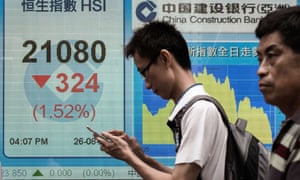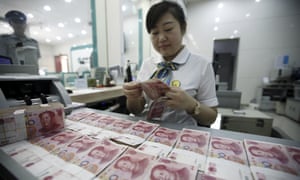The United Nations is yet to release the definitive figures on this matter, but there cannot be many countries with a higher per capita average of hours spent smiling each day than Sri Lanka. At the risk of ethnic stereotyping, they are a happy bunch. Not Rangana Herath, though, at least not when he's bowling. At least not when I was fielding to his bowling.
If you were to manufacture a range of international-cricketer teddy bears, Herath Mudiyanselage Rangana Keerthi Bandara Herath would surely be the biggest seller. But don't let those cartoonishly cute and pudgy contours fool you. Herath's on-field manner is that of a prickly, pernickety upcountry bureaucrat, who, for his own barely acknowledged pleasure, is going to keep you occupied for hours doing something of little consequence. Just business, see.
This air of sternness frequently escalated into a full-fledged scowl during his sole, truncated North Staffordshire and South Cheshire League campaign for Moddershall in 2009, when a combination of lacerating Atlantic winds, green pitches and abysmal close catching left him with the unflattering statistics of 112-27-333-14 from eight league outings. That's an average of 23.79. To put that into context, his current Test bowling average in his homeland stands at24.86.
As with his eventual emergence from the shadow of Muttiah Muralitharan to be Sri Lanka's strike spinner, Ranga had fairly big boots to fill. He had been signed to replace South Africa's Imran Tahir - 80 wickets at 11 in our title-winning campaign the previous summer - and if you were to ask the club's ultras which of the two would go on to become the world's second-ranked Test bowler, it would have been a no-brainer: Tahir went through sides like a cheap samosa, Herath like porridge.
But then, the logic behind the signing was a little counter-intuitively tilted towards batting prowess. Rigorous online scorecard perusal duly threw up a recent 88 not out for Sri Lanka A in a 50-over game in Benoni against South Africa A, coming in at 94 for 6 and seeing them past the victory target a further 200 runs ahead. Box ticked, although subsequent first-hand evidence revealed a biffer with three main shots in his repertoire: pull, sweep, slog (and hybrid forms of those strokes). The posh side was only really used for leading edges.
Said research also disclosed that he had a carrom ball, a fact gleefully divulged to the local media, as was a list of Herath's high-profile victims, all incorporated into an artfully casual observation-cum-de facto press release designed to tweak the fret glands of the league's batsmen: "Anyone who's got Trescothick, Chanderpaul, Ponting, Kallis, Inzamam and Steve Waugh out has to be able to bowl a bit, so the club's delighted with the signing, particularly if the long-range forecasts for a hot, dry summer are correct."
Neither the weather nor the performance forecasts proved accurate, sadly, although clearly he could "bowl a bit". That said, we didn't want Herath to bowl so well that he would be picked up by a county (as Tahir had been the previous July by Hampshire, where he was retained for 2009) or picked by his country, for whom he had played the most recent of his then 14 Teststhe previous December, taking 1 for 115 against Bangladesh, which was, I suppose, both a good and bad omen.
Herath took 2 for 92 on debut, followed by 2 for 71. He bagged his solitary five-for the following week in a low-scoring win on a sticky dog, and just five more scalps over the next four weeks. His only game on a dustbowl turned out to be his final game, in which the wiles of former England batsman Kim Barnett, aged 48, (dropped second ball by yours truly) held him at bay, although Barnett did adjudge Herath the third best spinner he'd faced, after Warne and Muralitharan.
 Where the plumbers, plasterers, policemen and pot-washers of North Staffs had succeeded against Herath, the Pakistani batsmen of 2009 failed miserably © AFP
Where the plumbers, plasterers, policemen and pot-washers of North Staffs had succeeded against Herath, the Pakistani batsmen of 2009 failed miserably © AFPWhile I remained confident he'd eventually come good should the summer ever arrive, we had expected a whole lot more. Alas, it was a tale of moist pitches and missed chances. The tracks were just too green and greasy, rendering his carrom ball the proverbial ashtray on a motorbike. Indeed, his subtle variations were so subtle, it seemed that they no longer really counted as variations. Rather, the batsmen didn't perceive them as variations, which was problematic since the whole point was to get them to see things that weren't there as though they were.
Yes, the returns were meagre and the supporters increasingly restless, yet we refrained from resorting to that occasional club cricket expedient of "accidentally" trapping his fingers in the door. And a good thing too, for in the dregs of a damp June Herath received a phone call from the Sri Lankan selectors: Murali had a shoulder injury, and he was needed.
Where the plumbers, plasterers, policemen and pot-washers of North Staffs had succeeded, the Pakistani batsmen failed miserably. Just hours after stepping off the plane, Herath would bag his first Test Man-of-the-Match award, in Galle, adding a decisive second-innings spell of 11.3-5-15-4 to a couple of useful cameos with the bat as Sri Lanka won by just 50 runs. In thenext game, another victory, he pocketed a maiden Test five-for as Pakistan ceded nine wickets for 35, and he followed it up with another five-for in the third game. So much for our two-wickets-per-game pro! Perhaps, ultimately, it was just a warm-weather thing - you know, needing to have feeling in his fingers, neshness such as that.
Anyway, the Moddershall hardcore may have groused at the comparison with Tahir, yet watching Herath dismiss Virat Kohli, Ajinkya Rahane and Rohit Sharma in Kumar Sangakkara's farewell series, perhaps they would have understood, belatedly, how in that busy, shuffling approach and snappy, narrow pivot; in the chest-on delivery imparting all the revs (and the curve, the drop) from the shoulder; in the clever use of the crease (something Tahir, less guileful, more heavy artillery, didn't do) and round-arm variation that either undercut or would spin sharply; and in the lesser-spotted carrom ball, there were the makings of a useful operator. It's a shame, I guess, that he kept his best performances for the Test arena.





 Credit: The Netflix app Rabbit
Credit: The Netflix app Rabbit